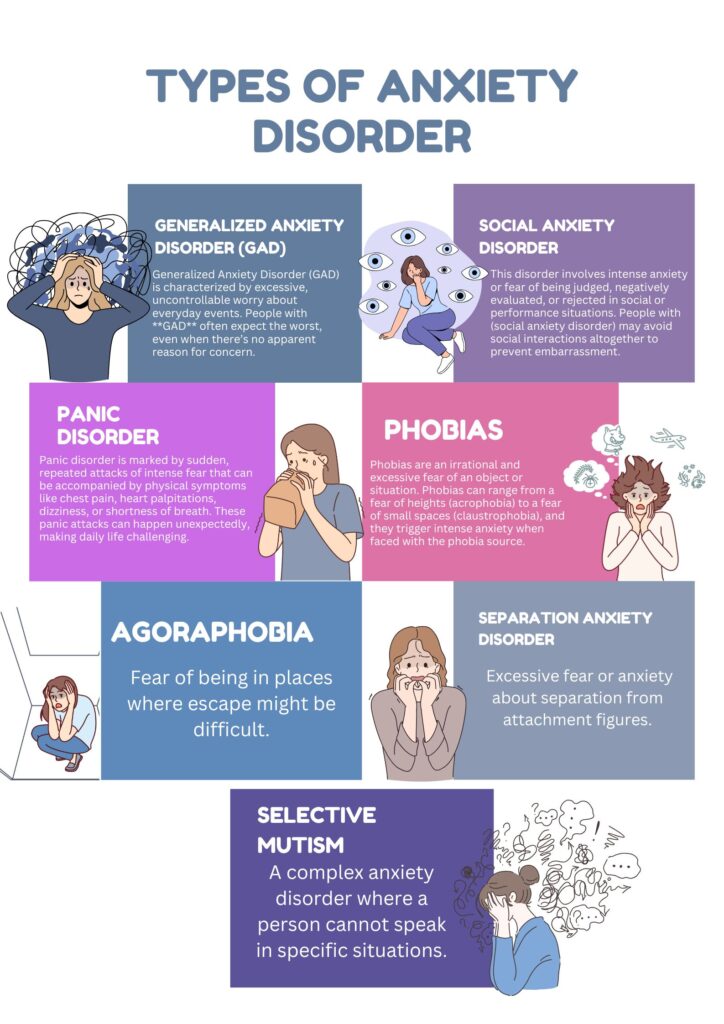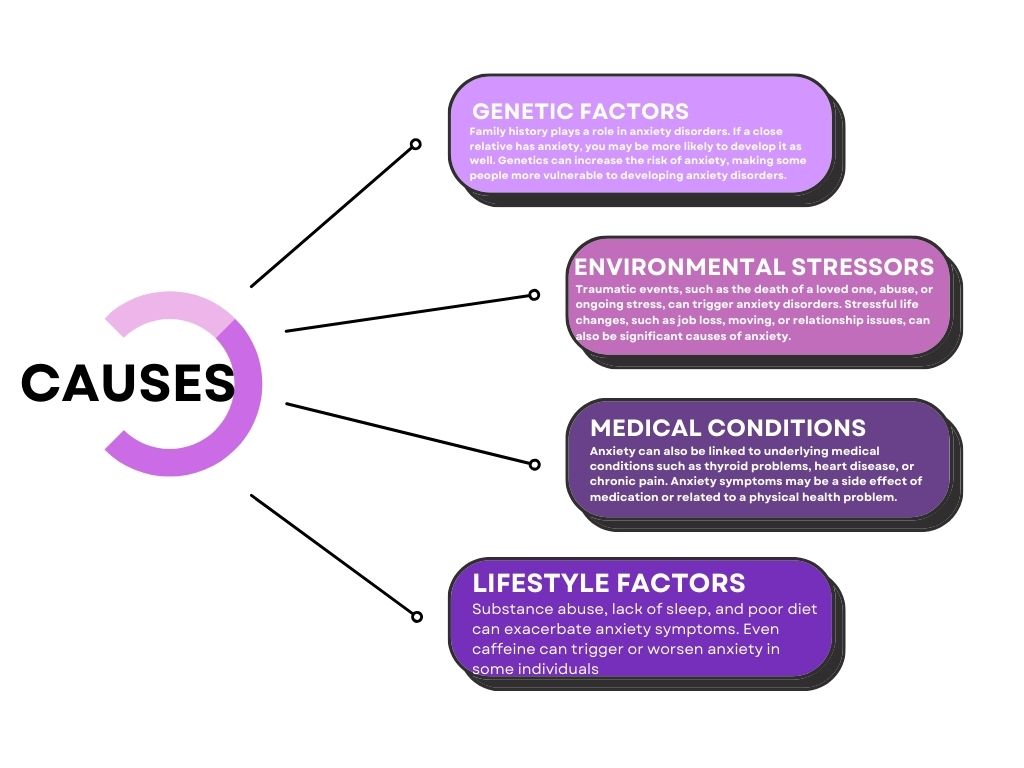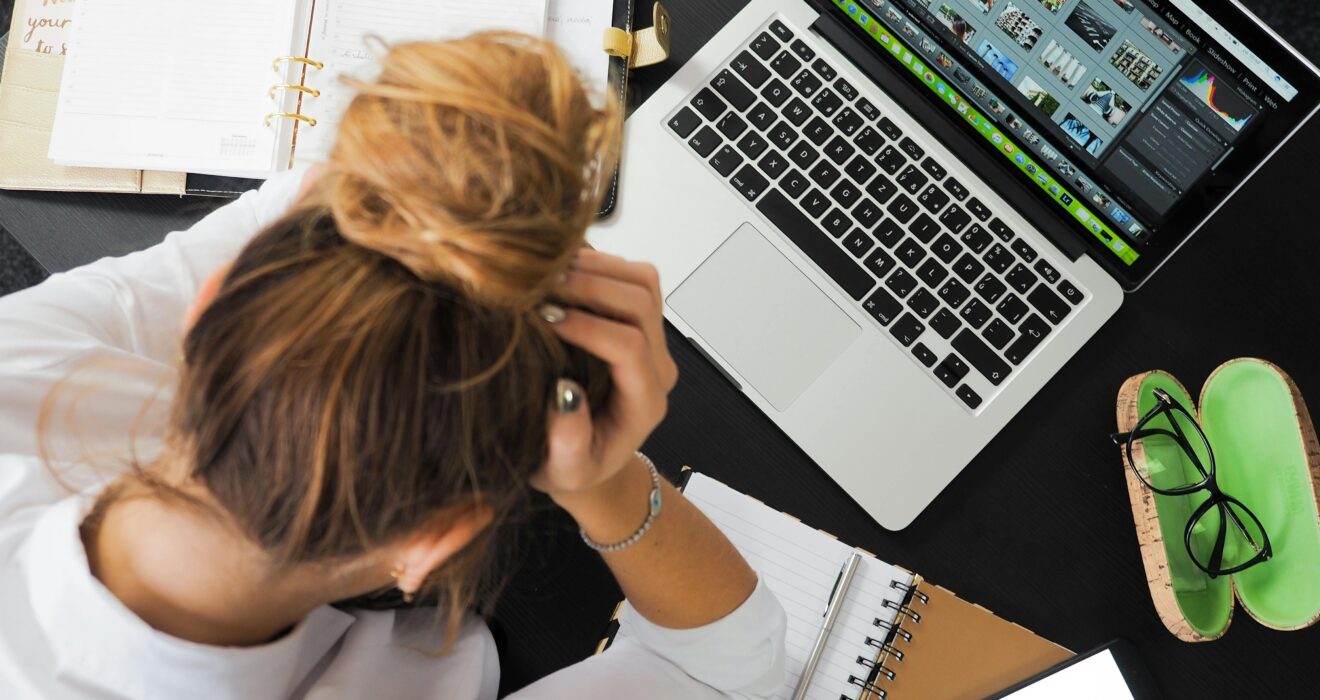The Root of Anxiety: Causes, Types, Symptoms, and How to Treat Them
Root of Anxiety has become one of the most common mental health conditions, affecting millions of people every year. It can interfere with the daily life of a person.
According to a 2024 global mental health report by the World Health Organization (WHO), anxiety disorders now affect about 300 million people. To add to these insights, a 2024 study published in The Lancet Psychiatry explored the role of digital consumption in anxiety. The research team found that prolonged social media use, especially among younger individuals, has been linked to higher anxiety levels, with 35% of individuals reporting a spike of feelings of fear and inadequacy from comparing themselves to others online. Moreover, the National Institute of Mental Health (NIMH) in a 2024 study confirmed that genetics still plays a critical role in anxiety development, but environmental triggers such as lifestyle, financial stress, and global crises continue to amplify its prevalence.
In this guide, we’ll survey the “root causes of anxiety,” the dissimilar types of anxiety disorders, the signs of anxiety, and beneficial treatments to help control this situation.
Types of Anxiety Root of Anxiety

Common Symptoms of Anxiety Disorders
Early understanding and accepting the symptoms of anxiety can be fundamental to start the healing process. Anxiety exhibits both emotional and physical symptoms.
Emotional Symptoms
- Constant worry or fear
- Feelings of dread
- Irritability
- Difficulty concentrating
- Restlessness
Physical Symptoms
- Rapid heartbeat
- Sweating
- Trembling
- Fatigue
- Nausea
- Dizziness
Causes of Anxiety: What Triggers It?

Diagnosing of Root of Anxiety: What to Expect
Anxiety disorders can be confirmed by a medical or mental health specialist by a physical examination, questioning, and investigation into your medical history. Proper diagnosis is a key factor in making a successful treatment plan for anxiety.
Most Common Treatments for Anxiety
- Medications for Anxiety Disorders
- Psychotherapy and Cognitive Behavioral Therapy (CBT)
Natural Remedies for Anxiety
- Mindfulness and Meditation:
- Herbal Supplements
Managing Anxiety: Practical Tips to Manage Anxiety in Daily Life
In addition to professional treatments, there are countless holistic solutions to find relief and control anxiety in day-to-day life.
Coping Strategies for Anxiety
- Deep Breathing Exercises
- Physical Activity
- Healthy Diet
Mindfulness and Relaxation Techniques
- Mindfulness meditation
- Yoga
- Muscle calming
FAQs on Root of Anxiety
How Can I Reduce Anxiety Quickly?
Breathing exercises should produce sudden comfort from anxiety.
Is Anxiety Genetic?
Yes, anxiety could be genetic.
What would be the Best Treatment for Anxiety?
The best treatment comprises a blend of therapy, medication, and by replacing living habits.
Conclusion: Finding Peace Amidst Anxiety
Anxiety disorders can be draining. Individuals can find relief by identifying the root of anxiety, admitting the symptoms, and having a treatment plan for anxiety management developed by a qualified professional. You can gain control of your mental health and if you or someone you know is suffering from anxiety, remember that help is accessible.



